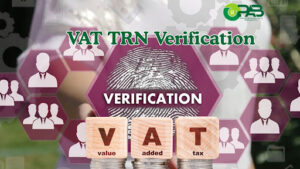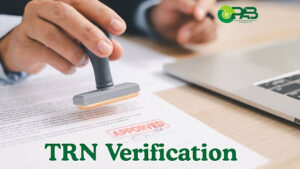The UAE has long been a business-friendly hub, attracting companies and entrepreneurs from around the world.
However, with the introduction of corporate tax, understanding the rules around corporate tax registration is now more important than ever.
One of the most common questions is: Is corporate tax registration mandatory in the UAE? This article answers that question in detail, covering who needs to register, the process, exemptions, and more.
What Is Corporate Tax Registration in the UAE?
Corporate tax registration in the UAE refers to the process of registering your business with the Federal Tax Authority (FTA) to comply with the country’s corporate tax laws.
Corporate tax is levied on the profits made by businesses operating in the UAE, and registering for it ensures that businesses comply with the UAE’s tax laws.
With the introduction of corporate tax in the UAE, it is mandatory for some businesses to register with the FTA once they exceed specific profit thresholds.
Understanding whether your business falls into this category is essential for avoiding penalties and maintaining compliance.
Is Corporate Tax Registration Mandatory in the UAE?

Yes, corporate tax registration in the UAE is mandatory for many businesses. The UAE government introduced corporate tax to create a more sustainable revenue stream while aligning with international tax standards.
However, whether your business is required to register depends on its size, income, and the nature of its operations.
Who Needs to Register for Corporate Tax?
To simplify, businesses need to register for corporate tax if they meet specific conditions, such as earning taxable income above the threshold set by the government or if they are involved in certain activities. Here’s a breakdown:
1. ✅ Businesses with Annual Profits Above the Threshold
If your business generates taxable profits exceeding AED 375,000 annually, it must register for corporate tax. This threshold applies to most businesses operating in the UAE.
2.✅ Foreign Companies Operating in the UAE
Foreign businesses that operate in the UAE and earn income within the country are required to register for corporate tax. This includes foreign companies with a branch or any other form of presence in the UAE.
3. ✅ Free Zone Companies
Free zone companies in the UAE are generally granted tax exemptions. However, businesses that exceed the profit threshold or engage in activities that fall under taxable categories will be required to register for corporate tax. Always check the specific regulations of the free zone where your company is based to ensure compliance.
4. ✅ Freelancers
Freelancers who exceed an income of AED 1 million in a calendar year must also register for corporate tax. Those whose income is below this threshold may not be required to register, but it’s important to confirm specific registration criteria with the FTA.
Are There Exemptions from Corporate Tax Registration?
While many businesses need to register for corporate tax, there are some exemptions. These generally apply to certain entities that the UAE government has deemed eligible for special treatment. These include:
- ✅ Government Entities: Businesses wholly owned and controlled by the UAE government are generally exempt from corporate tax.
- ✅ Qualifying Public Benefit Entities: Non-profit organizations and public benefit entities that meet specific conditions set by the government may be exempt.
- ✅ Qualifying Investment Funds: Certain types of investment funds that meet eligibility criteria are exempt from corporate tax.
- ✅ Wholly Owned UAE Subsidiaries of Exempt Entities: If a business is wholly owned by an exempt entity and does not engage in taxable activities, it may be exempt from registration.
However, businesses engaged in taxable activities, such as commercial or industrial operations, must register even if they are owned by exempt entities.
The Process of Registering for Corporate Tax in the UAE

If your business needs to register for corporate tax, here’s how you can complete the process:
- ✅ Create an Account on EmaraTax Visit the official portal, EmaraTax, where businesses can manage their tax registration. You’ll need to create an account or log in if you already have one.
- ✅ Prepare Necessary Documentation You’ll need to gather key documents such as your trade license, financial statements, company ownership details, and any other documents requested by the FTA.
- ✅ Complete the Registration Form Once you’ve logged in to EmaraTax, you can submit your business information and necessary documents. The FTA will review the application for approval.
- ✅ Receive Your Corporate Tax Registration Number After your registration is approved, the FTA will issue a Corporate Tax Registration Number (CTRN), which is essential for complying with future corporate tax filings.
📚 For detailed guidance on the registration process, you can read this article: How to Register for Corporate Tax in the UAE.
Key Deadlines for Corporate Tax Registration in the UAE
Meeting registration deadlines is critical to avoid penalties. For natural persons (individuals running businesses), registration must be completed by March 31 of the following year after surpassing the AED 1 million turnover threshold.
For businesses, the registration deadlines depend on their fiscal year, and companies should register within a certain period after receiving their trade license or meeting the profit threshold.
Make sure to stay updated on the deadlines, especially if your business or activities are affected by the corporate tax law.
📚 For more information on these deadlines, refer to this article: UAE Corporate Tax Registration Deadline.
What Happens if You Don’t Register for Corporate Tax?

Failure to register for corporate tax can have serious consequences. The FTA imposes a penalty of AED 10,000 for businesses or individuals who fail to register by the deadline. This penalty is enforced if you don’t comply with the registration requirements.
In addition to penalties, businesses may face legal consequences or restrictions on operations if they continue to avoid compliance. Therefore, it’s essential to complete the registration process on time.
Differences Between VAT and Corporate Tax Registration
Many businesses confuse VAT and corporate tax. While both taxes are part of the UAE’s broader tax system, they are distinct and require separate registrations.
- ✅ VAT Registration: VAT (Value Added Tax) is a consumption tax that applies to the sale of goods and services. If your business has taxable sales exceeding AED 375,000, you must register for VAT.
- ✅ Corporate Tax Registration: Corporate tax is levied on the profits made by businesses. Registration is required for businesses and individuals exceeding the threshold set for taxable income, which is AED 375,000 annually for most businesses.
It’s important to note that if your business exceeds both thresholds, you may need to register for both VAT and corporate tax.
📚 For more information on VAT, you can visit: FTA VAT Registration.
Penalties for Not Registering for Corporate Tax in the UAE
If you miss the deadline for corporate tax registration, the FTA imposes penalties. The late registration penalty is AED 10,000, and there could be additional penalties if you don’t comply with future tax filing requirements.
In certain cases, the FTA may waive penalties for late registration, especially if you submit your tax returns within seven months of the end of the tax period.
For more details on penalties and possible waivers, refer to the official FTA information.
Should You Register for Corporate Tax in the UAE?
If your business is generating taxable profits in the UAE, corporate tax registration is likely mandatory. Failing to register can result in penalties and other legal consequences.
It’s crucial to stay informed about the registration requirements and ensure that your business complies with all tax laws.
For expert assistance with corporate tax registration and tax compliance, Outsource Prime Accountants and Bookkeepers (OPAB) provides tailored services for businesses in Dubai and across the UAE.
OPAB specializes in corporate tax filing, VAT compliance, and accounting solutions using platforms like Zoho Books and QuickBooks.
Visit OPAB today to ensure your business stays compliant and financially sound.
Frequently Asked Questions About Corporate Tax Registration in the UAE
1. What is the threshold for corporate tax registration in the UAE?
Businesses are required to register for corporate tax if they earn taxable profits above AED 375,000 annually. This applies to most companies, including foreign companies, freelancers, and those operating in free zones.
2. Does a freelancer need to register for corporate tax?
Yes, freelancers earning more than AED 1 million in taxable income must register for corporate tax. If a freelancer earns below this amount, they may not be required to register.
3. Can I register my business in Dubai to avoid taxes?
No, registering your business in Dubai does not exempt you from corporate tax obligations. The corporate tax applies across the entire UAE, regardless of location, and businesses must comply with the national tax laws.
4. Do all companies need to register for VAT in the UAE?
No, businesses with taxable sales below AED 375,000 in a 12-month period are not required to register for VAT. However, businesses exceeding this threshold must register for VAT.
5. What taxes are not required in the UAE?
The UAE does not have personal income tax, capital gains tax, or wealth tax. However, businesses may be subject to corporate tax, VAT, and other specific taxes depending on their activities.
6. What is the corporate tax rate in the UAE?
The corporate tax rate is generally 9% for taxable income exceeding AED 375,000. Different rates may apply for certain types of businesses or entities, such as those operating in specific free zones.









